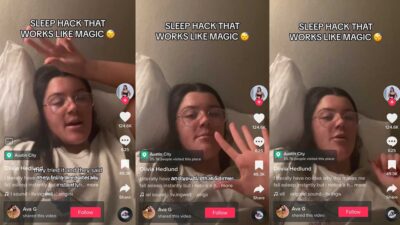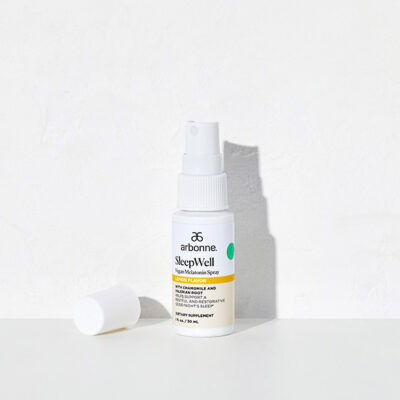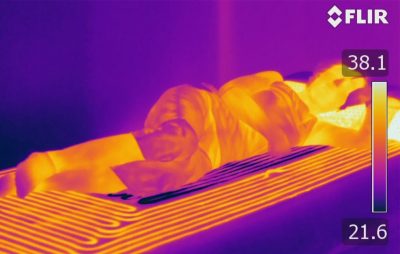If you’ve ever spent more time in bed wishing you could fall asleep instead of actually sleeping, you’re not alone. It’s especially stressful when you know you have to be up early in the morning or just feel drained and are unable to fall asleep. Luckily, learning how to fall asleep fast isn’t rocket science — read on to learn how.
How Long Should it Take You to Fall Asleep?
Generally, it takes most adults anywhere between 10-15 minutes to fall asleep at night. Of course, this may vary — if you had a particularly exhausting day, you’ll likely fall asleep much quicker than you would if you took an hour-long nap after dinner. That being said, everyone is different, and as long as you’re getting the recommended 7-9 hours of sleep each night, there’s likely nothing to worry about.
Tips to Help You Fall Asleep Faster
I’ve compiled my favorite tips and tricks to help you fall asleep fast (without spending a fortune). They cover everything from behavior changes you can make to sleep products you can try.
Watch What You Eat or Drink Late in the Day, Especially Caffeine
Anything you eat or drink in the hours leading up to bed can have an effect on your sleep quality. “It’s important to steer clear of things that might affect your sleep such as caffeine and alcohol,” says Dr. Shelby Harris, Sleepopolis’ director of sleep health.
“Try your best to limit caffeine 8 hours before bed, and you should avoid alcohol and heavy meals within 3 hours before bed,” says Harris.
Instead, try eating foods with omega-3 fatty acids, like salmon, during dinner. Some research supports the connection between omega-3 consumption and healthy sleep patterns. Harris recommends snacking on a small banana with 1 tablespoon of peanut butter or a whole wheat cracker with low-fat cheese. Walnuts, greek yogurt, and cherries can also aid in sleepiness and won’t interfere with nighttime sleep.
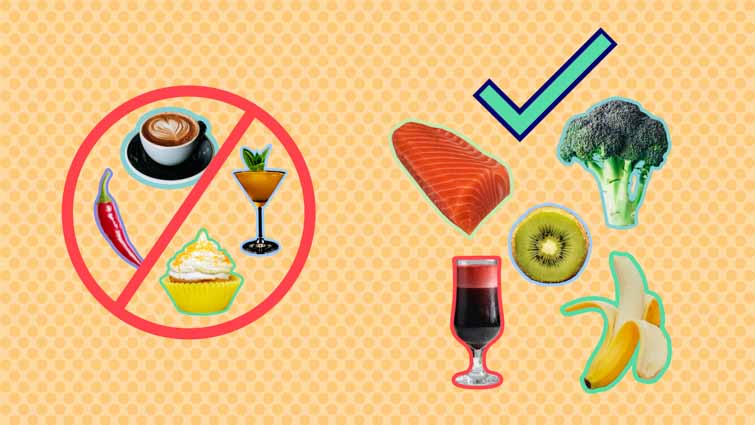
You can read more about food and sleep here.
Avoid Phone Use Late at Night
Staring into the blue light of your smartphone is not going to help you get to sleep. In fact, it’s more likely to do the opposite. Getting into the habit of putting your phone out of arm’s reach, at least a half hour before you settle into bed, will help your mind and body wind down.
“Blue light exposure from cell phones, computers, tablets, and TV’s can interfere with your circadian rhythm, making it more difficult for you to fall asleep and worsen your overall sleep quality,” says Harris.
Harris says that staying up late in the evening to watch TV shows, movies, or read social media posts can also distract someone from getting the recommended 7-9 hours of sleep.
Similarly, binge-watching Netflix before bed or falling asleep with the TV on negatively impacts your ability to fall asleep and stay asleep. There’s nothing wrong with catching your favorite nighttime show, but leave a window of time between watching TV and going to sleep. There’s a time and place for technology but just remember — the fewer distractions you have in your bedroom, the faster you’ll get to sleep.
Know Your Chronotype
Everyone has a specific chronotype, and it can tell you a lot about how you sleep. For example, if you feel like you’re a morning person or a night owl — that has to do with your chronotype.
There are four main chronotypes, each named after an animal:
- Bears. Bears tend to sleep and wake according to the sun. They typically feel most energetic during the day and fall asleep easily at night.
- Wolves (Night Owls). Wolves generally sleep and wake later than others. They are often most productive in the middle of the day and in the evening.
- Lions (Early Birds). Lions wake up early and are most productive in the morning. Due to early wake times and daytime energy expenditure, they are usually sleepy by evening.
- Dolphins. Dolphins are light sleepers who have difficulty following a regular sleep routine. They are most productive in the mid-morning to early afternoon.
Once an individual identifies their chronotype, they can establish a healthy and consistent routine to cater to the body’s natural rhythm. This may mean maintaining consistent bed and wake times, and eating meals and exercising around the same time each day, including weekends.
Create a Cool Sleeping Environment
The temperature of your bedroom affects the temperature of your body, and it’s much harder to fall asleep when you’re hot. So, whether you’ve got an air conditioner, a fan, or you simply adjust your thermostat, a temperature of 60-70 degrees Fahrenheit is most conducive to falling asleep quickly.
“Body temperature drops slowly while you’re sleeping and rises again in the morning. This happens in-sync with your circadian rhythm and is an essential part of falling and staying asleep,” says Dr. Harris.
Dr. Harris adds that if your body temperature is too warm, it can cause you to wake up more frequently throughout the night — affecting your sleep quantity and quality.
It’s also important to be mindful of your bedding. If you are often waking up during the night due to being too warm, look for sheets that are made with fabrics that promote temperature-regulation and have good breathability. We recommend linen or cotton sheets for hot sleepers.
It may also be helpful to also add a humidifier in your room if it’s winter or a dry area where you live.
Of course, a lot depends upon personal preference, so you may have to experiment a bit until you find the temp that’s perfect for you. I’m an example of someone who cannot fall asleep unless the room is nice and cool. Personally, I like to use a fan because it offers me a soft breeze, but it also provides a nice whirring, white noise.
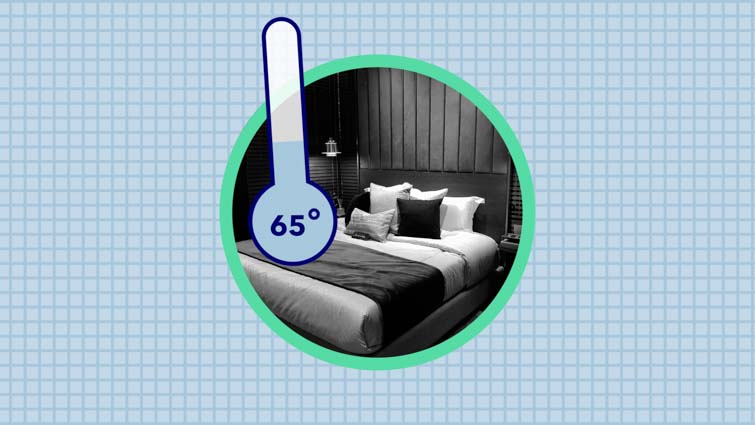
Avoid Looking at the Clock
If you’re in bed, watching the clock, stressing over each minute that passes, wondering why you haven’t fallen asleep yet, you’re only increasing your chances for a restless night. Stress has proven time and time again to cause insomnia and keep you from falling asleep.
Do your best to relax and close your eyes (easier said than done, I know). Not only will this help you go back to sleep faster, but you’re still getting rejuvenating effects just by lying calmly in bed.
If you wake up in the middle of the night and can’t fall back asleep, avoid watching the clock. Instead, try moving to a different room, and doing something relaxing to help get your mind and body back into a calm state, according to Dr. Harris.
Count Backward from 300
While you’re laying in bed wanting to fall asleep quickly, start counting backward from 300 in your head in increments of 3. So 300, 297, 294, 291… you get the gist.
FAQ
Q: What should I think about to fall asleep? A: Well, first of all, don’t think about falling asleep! Instead, imagine yourself playing a game like darts or golf, hitting a bullseye, or sinking a hole-in-one every time. Additionally, fantasizing about a vacation you once took and enjoyed can also help lull you into dreamland.Try New Sounds
If you find nighttime silence to be more deafening than relaxing, I suggest you invest in a white noise machine, or download an app (many of which are free) that plays soothing music to lull you to sleep. In fact, research has show that songs with a BPM of 60-80 may help you catch some Zzz’s. You can check out some of our favorite sleep apps and sleep trackers for options.
Conversely, if you need absolute silence in order to fall asleep, there’s a whole world of noise-canceling earbuds out there made specifically for sleep time. For example, some earbuds are designed to play music or guided meditation, while others serve to mask outside noise by matching certain frequencies (hello high-tech!). Of course, if you’re on a budget, a regular set of earplugs can also do the trick.
Incorporate Aromatherapy for Sleep
Ah, aromatherapy — a fan-favorite method to get you off to dreamland. Certain essential oils can help improve your sleep quality and quantity — lavender, in particular, has proven to induce drowsiness, relax muscles and provide the body a general calm.
And with aromatherapy, you don’t need to keep a candle burning all night. Drop some lavender oil into a diffuser, or spray your bedding with a lavender mist, and feel yourself become relaxed and ready for a deep snooze.
Of course, not everyone loves the scent of lavender, and that’s totally fine. There’s anecdotal evidence — and some early studies — that suggest peppermint, sandalwood, and other essential oils extracted from aromatic plants may help you sleep as well. Find some great options in our roundup of the best essential oils for aromatherapy and sleep.
Establish the Essentials
Although the above tips are super useful, if you aren’t sleeping on the mattress or bedding that supports your unique body and slumber style, then no amount of advice is going to bring you to your full sleep health potential. After all, your bed is the foundation of your bedroom and should accommodate your specific needs.
That said, there are some guidelines that you can follow in order to find the mattress and sleep accessories that are best for you. For example, stomach sleepers typically need a firm mattress and a soft pillow, while side sleepers often need a soft mattress and a firm pillow.
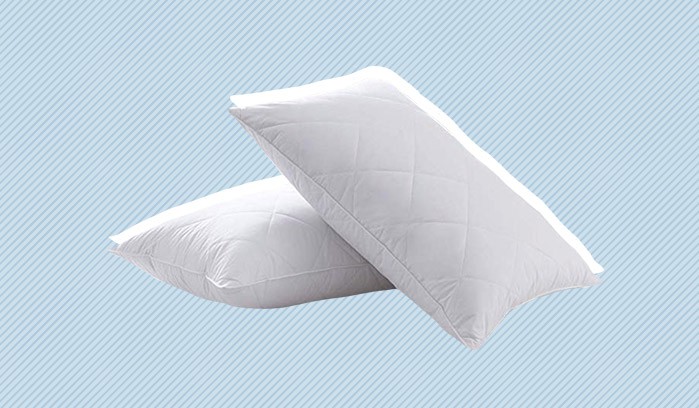
Meanwhile, back and combination sleepers can kind of pick and choose between soft and firm, keeping in mind that neutral spine alignment and pressure relief are most important! If you need some help getting started on your search, you can take our mattress quiz to get a few recommendations on great options.
But the truth is, every body is different and everybody has their own special sleep habits. The person with back pain might not need the same mattress or pillow as the person with neck pain. And the hot sleeper likely needs something different than the sleeper who runs cold. Lucky for you, we’ve rounded up the best mattresses and pillows for all sleeping positions:
Best Mattresses:
Best Pillows:
- Best Pillows for Side Sleepers
- Best Pillows for Stomach Sleepers
- Best Pillows for Combination Sleepers
FAQ
Q: How do I stay asleep? A: Curate your sleep space ahead of time. Prep the perfect lighting, make your bed, and don’t drink caffeine or eat a heavy meal within 3 hours of bedtime. Additionally, getting good exercise during the day will help you sleep through the night!Turning your bedroom into a sleepy oasis that calms the senses will help you get to sleep faster, but your individual routines matter too. So, now that we’ve talked about how our bedrooms affect our ability to fall asleep, let’s focus on our personal habits.
Follow a Healthy Nighttime Routine
If you’ve ever wondered why you start to feel sleepy at the same time every day, you might like to know that there’s a scientific reason behind it. And guess what? If you know how to manipulate it, you can use it to your advantage…
Developing a consistent, healthy nighttime routine can train your body’s internal clock, also known as circadian rhythm, to know when it’s time for bed. How does one do that, you ask? Well, if you set an alarm to wake up and go to sleep around the same time every day, your circadian rhythm will automatically adapt to that pattern (cool, right?).
“A consistent nighttime routine can help the brain and body associate those activities/steps with sleep,” says Harris. “If you need a reminder to put things down in the evening, try using an alarm to remind you when it’s time to stop and begin decompressing from the day. It’s also important to make sure to get bright light in the morning,” she says.
Now, even though it may take a little while for your body’s clock to reset, consistency is key. Go to sleep in the 10 o’clock hour, for example, every night for two weeks or so. Before you know it, your body will tell you when it’s time to hit the hay.
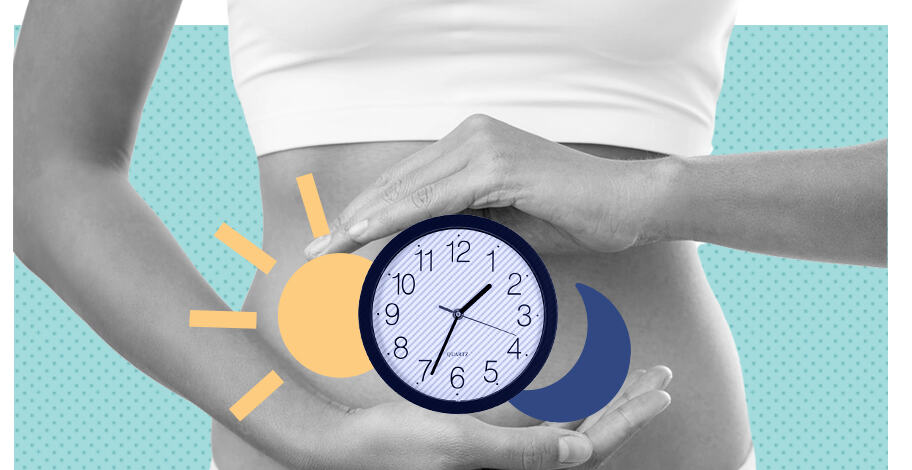
Practice Stress Relief Before Bed
Fortunately, if you are feeling stressed before bed, there are a few things you can try to decompress.
“Relaxation techniques such as deep breathing exercises, meditation or yoga before bed can promote better sleep,” says Harris. She also recommends creating a soothing nighttime ritual in the hour or so leading up to bedtime.
“This can be very effective in helping you relax and prepare for sleep at night, and it also gives you something to look forward to, especially after a long day,” says Harris. “A nighttime routine or ritual can be as general or specific to you as you want it to be, but regardless, it should always incorporate things that relax you and promote sleep.”
Want to practice a deep breathing exercise tonight? Try this popular method:
- Exhale deeply through your mouth, making a whoo sound as you do it
- Close your mouth, and inhale through your nose as you silently count to 4
- Hold that breath for 7 seconds
- Exhale through your mouth again, this time for 8 seconds, making a whoo sound
- Repeat at least four times
Whether you choose meditation, yoga, deep breathing, or all of the above, remember that these are not meant to be strenuous exercises. They are just some simple ways to release tension in the body and make your whole self sleep-ready.
Final Thoughts
In many ways, your bedroom is your sleep sanctuary. If you keep it tidy, fill it with relaxing aromas, ambient lighting, and soothing sounds, it’s going to be much easier to fall asleep when the time comes. Of course, sleeping on the right mattress and bedding definitely helps, but your personal habits play a part too.
I do hope the tips I’ve listed here help you fall asleep quicker, but everyone’s different, so don’t get discouraged if it takes a little trial and error. Good sleep is always worth the effort. In the meantime, don’t forget to subscribe to our YouTube channel, and follow us on Facebook, Twitter, and Instagram because we’re always churning out more content with one main thing in mind — to get you some better sleep.
FAQs
What things could I be doing that are making it hard to fall asleep?
Many factors can affect your ability to fall asleep. These can include a bad or old mattress that needs to be replaced, room temperature, lighting, blue light from smart devices, and even outside noise or lack of it.
Does keeping a room cooler help you fall asleep?
Getting to sleep is much harder when the body is hot. The temperature the bedroom is kept at can play an important role in better sleep. A temperature of 60-70 degrees Fahrenheit is most effective for falling asleep quickly.
How can I use sound to fall asleep faster?
Some people really enjoy the silence while others cannot fall asleep without some sort of noise like a fan, etc. There are other options as well such as white noise machines or apps or listening to quiet mellow music. While those who need silence may want to invest in a good pair of sound-canceling earbuds.
Why can't I relax when it's time to go to sleep?
Setting up a good healthy nighttime routine is important as well as trying to go to bed and get up at the same time each day to get your body into a rhythm. Other things that can help before bedtime are breathing exercises, yoga poses, or relaxation strategies.
